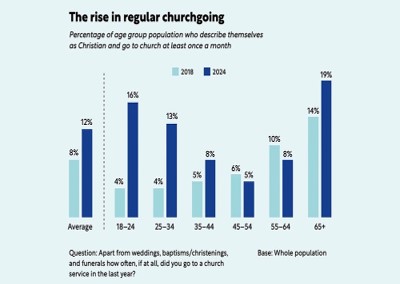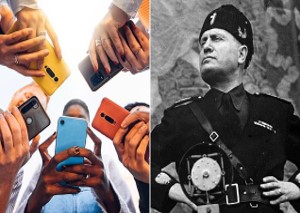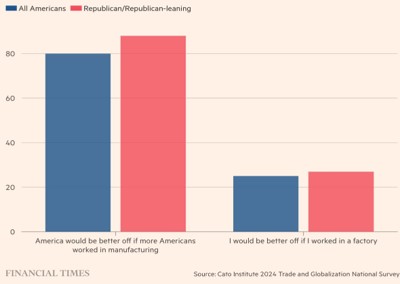If you think Lance Armstrong is a modern phenomenon then think again. At the first modern Olympics of 1896, in Athens, Spyridon Belokas was stripped of the bronze medal when he was found to have ridden in a carriage for one section. Eight years later in St Louis, Fred Lorz crossed the finish line first before confessing he covered almost half the course in his manager’s car.
Sam Salama
Despite being known by 95% of consumers, Chips Ahoy! is only found in 30% of U.S. households. So the brand has recently launched several innovations to appeal to a wider customer base, including Baked Bits (on-the-go snacking), more products under $3, and better for you products like gluten-free Chips Ahoy!
How do you turn an unknown yogurt brand into a $3 billion revenue business? Give it mass distribution. According to Chobani’s founder Hamdi Ulukaya, “the single most important decision we made” was insisting the product be sold in mainstream grocery stores rather than specialty stores, and that it be stocked in the dairy aisle not the gourmet food aisles.
According to self reported data (in chart), the share of people going to church at least monthly has risen from 8% in 2018 to 12% in 2024, and from 4% to 16% among 18-24 year olds. But actual recorded attendance tells a different story. In the same time period, C of E churchgoers declined from 1.1 million to 1 million, and Catholic churchgoers from 700,000 to 550,000. There are several potential reasons for this gap, like the rise of spiritualism, but what’s clear is that the Gen Z Christianity revival is overhyped.
The challenger brand has disrupted the hotel industry by asking a simple question: “what don’t we need?” Apart from a strong focus on technology and convenience, its hotels shun many other standard features. That’s why they are situated in prime locations, but they use just 4.5 staff per shift and all rooms are identical.
In the recent conclave, clerics actually used the film (of the same name) for guidance on deciding the new Pope. The film is considered to be remarkably accurate, which is especially helpful for the clerics with little experience of Vatican politics and protocol.
It’s true that people who participate are healthier, but that’s not a result of the programmes themselves: participants tend to be healthier beforehand. In fact a randomised study found that these schemes have no significant impact on healthy behaviours (or medical spending and absenteeism for that matter).
Côte Brasserie recently launched a range of £10 mains on Monday to Friday. A great offer, made even better because of its clever framing: the meal is more affordable than a range of (often needless) items you buy.
In Japan, sales of adult nappies have outpaced infant nappies for more than a decade – which makes sense given the country’s unusually old population (those aged 65 and over make up 30%). The decline of infant nappies has become so stark that Oji Holdings, a leading producer, recently announced it will stop making them altogether.
The Waitrose branded podcast gets more than 10 million views every week, and has hosted the likes of Florence Pugh, Tom Holland and Shania Twain. When a recipe is chosen for an episode, it leads to a 5,000% spike in searches for it on the Waitrose website.
Recent studies suggest so, but it’s a big misinterpretation. Excellent follow up research from KCL, exploring different question wordings, shows that Gen Z do indeed want a strong leader – but not if it means a dictator who gets rid of elections. In reality, Gen Z are calling out for better political decision making and not the end of democracy.
The vast majority of Americans agree the country would be better off if more people worked in manufacturing. But it’s less clear who those people should be – only 25% of Americans agree it would be better if they did.
An app made by aviation geeks – for aviation geeks. According to the CEO, the company’s seven employees still ask themselves the simple question that has informed all of their choices from the start: “What would we want?”
Every fanbase thinks their chants are the best, but they all have the same (surprising) origins. Some are based on hymns, such as “Cwm Rhondda” spawning “You’re not singing anymore.” Others are based on classical music, like Elgar’s “Land of hope and glory.” But my favourite example of stolen creativity: “You’ll never walk alone” comes from the 1945 Rodgers and Hammerstein musical Carousel, and is now used by Liverpool, Celtic and Borussia Dortmund.
Almost half of UK adults gamble in a given month, but the occasional players are not the ones the industry cares about: 86% of online betting profits come from just 5% of (very obsessive) customers.














